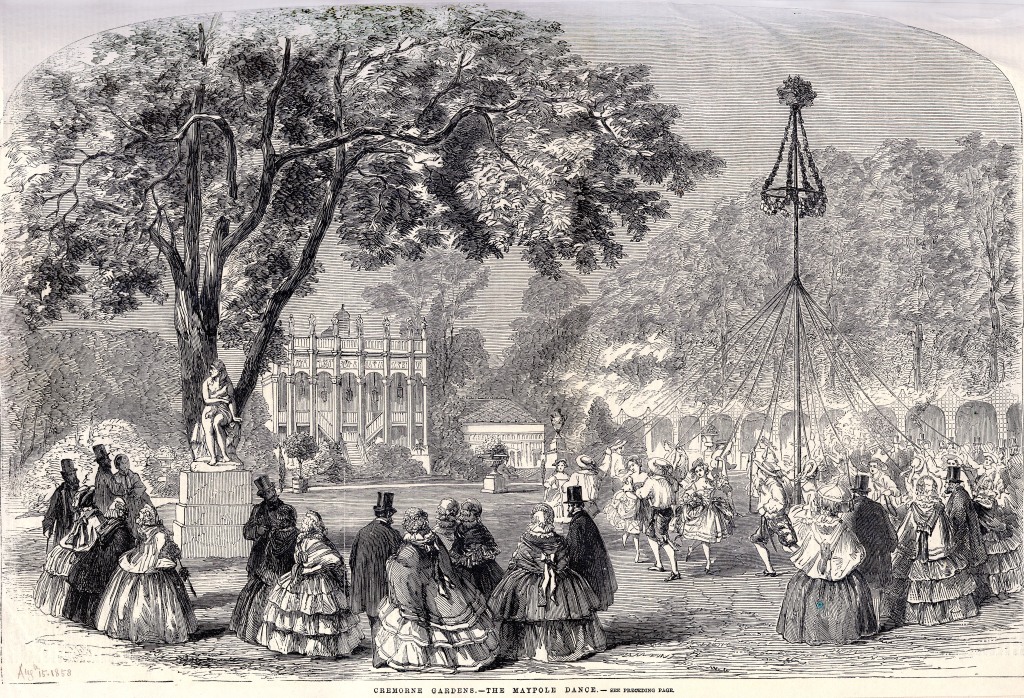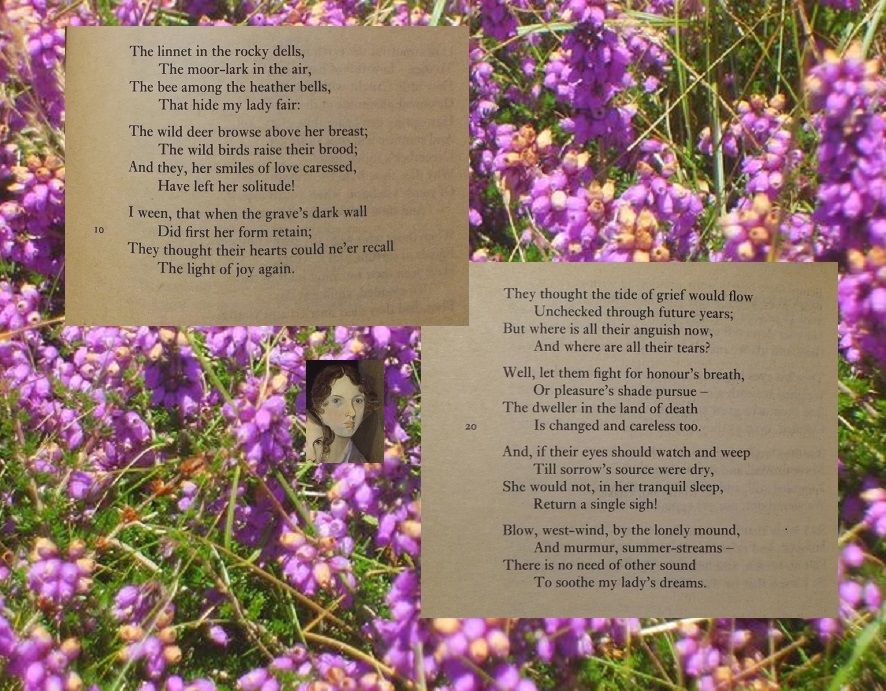We have entered May, immortalised in song as the Merry Month Of May, or as the Lusty Month Of May in a rather wonderful number from the musical Camelot. Of course this May is a May different to any other, but we can still look out of our windows, or take our daily exercise, and see the signs of a coming summer: birds are collecting nesting material and singing merrily, bluebells are springing forth in great profusion, and the sun makes regular appearances in an unusually azure sky. In short, despite our understandable anxieties, nature is thriving in a way we’ve not witnessed in our lifetimes. Free of the usual hustle and bustle, and with pollution lowered, we can see and hear nature’s beauty as never before – there have even been pictures of deer walking through Sheffield city centre and cows strolling around York in the midnight hour. It’s almost as if we’ve been transported back to an earlier time, so it’s a perfect opportunity to look at May in the Brontë writing.

In its natural serenity, our May reminds us of the one a young Jane Eyre encountered at her school:
‘April advanced to May: a bright serene May it was; days of blue sky, placid sunshine, and soft western or southern gales filled up its duration. And now vegetation matured with vigour; Lowood shook loose its tresses; it became all green, all flowery; its great elm, ash, and oak skeletons were restored to majestic life; woodland plants sprang up profusely in its recesses; unnumbered varieties of moss filled its hollows, and it made a strange ground-sunshine out of the wealth of its wild primrose plants: I have seen their pale gold gleam in overshadowed spots like scatterings of the sweetest lustre. All this I enjoyed often and fully, free, unwatched, and almost alone: for this unwonted liberty and pleasure there was a cause, to which it now becomes my task to advert.’
Of course we then learn that there is another similarity between the May that Jane encountered, and which writer Charlotte Brontë encountered at Cowan Bridge, and the one we are currently experiencing – but we will leave that for another day and happier times.

We find another similarity in Anne Brontë’s Agnes Grey, as in this month that should be bright and happy Agnes finds herself without work and a salary, an uncertain future that many right now could sympathise with:
‘One sweet evening towards the close of May, as I was rejoicing in the near approach of the holidays, and congratulating myself upon having made some progress with my pupils (as far as their learning went, at least, for I had instilled something into their heads, and I had, at length, brought them to be a little – a very little – more rational about getting their lessons done in time to leave some space for recreation, instead of tormenting themselves and me all day long to no purpose), Mrs. Bloomfield sent for me, and calmly told me that after Midsummer my services would be no longer required.’

In The Tenant Of Wildfell Hall we see Gilbert Markham enjoying a May walk, not only for the beautiful countryside but for the beautiful companionship of the mysterious Mrs. Graham. May has worked her amorous magic upon him, as she has done throughout the centuries:
‘I have a very pleasant recollection of that walk, along the hard, white, sunny road, shaded here and there with bright green trees, and adorned with flowery banks and blossoming hedges of delicious fragrance; or through pleasant fields and lanes, all glorious in the sweet flowers and brilliant verdure of delightful May. It was true, Eliza was not beside me; but she was with her friends in the pony-carriage, as happy, I trusted, as I was; and even when we pedestrians, having forsaken the highway for a short cut across the fields, beheld the little carriage far away, disappearing amid the green, embowering trees, I did not hate those trees for snatching the dear little bonnet and shawl from my sight, nor did I feel that all those intervening objects lay between my happiness and me; for, to confess the truth, I was too happy in the company of Mrs. Graham to regret the absence of Eliza Millward.’
May is traditionally a time which heralds a rebirth of nature, a time to leave sorrows behind and rouse our spirits from a long wintry slumber; little wonder then that it should be a time especially loved by Emily Brontë. She was always attuned to the changing seasons and the wheel of the year, and this cycle of life, death and rebirth which she saw every year helped to empower her own stoic attitude. This is evident in this beautiful and moving poem which Emily wrote on the first of May 1844. It’s perfect for these times – and whatever the world brings us, we always find that the Brontës have much to say to us. I leave you with Emily’s poem now; may the glory of May bring light to your hearts, and may you remain happy and healthy. I will see you next Sunday with my new Brontë post.


A lovely, uplifting post. Thank you!
lovely Emily was brilliant at writing poems they were all very talented writers and thank you for your lovely artical
Great post and beautiful poem selection! This is the best greeting to May I have seen. Thank you 🙂